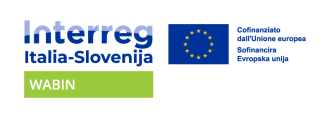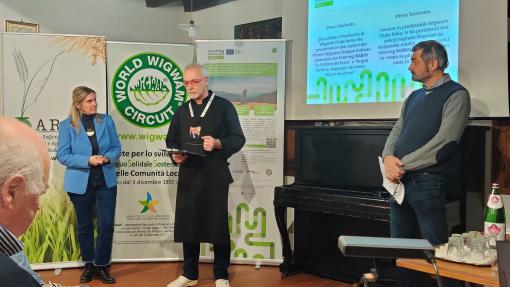The seminar held on November 29, 2024, at the headquarters of Wigwam Clubs Italia APS in Piove di Sacco, PD, focused on current issues such as water pollution from PFAS, the role of information, and sustainable water resource management.
During the event, experts examined the origins of PFAS, their negative impact on the environment and public health, and the challenges of managing contamination. Concrete cases were highlighted, such as the activism of Mamme No PFAS and the scientific studies on the effects of these substances on male fertility, presented by Dr. Francesco Bertola.
Diego Santaliana, Project Manager at Polo Tecnologico Alto Adriatico and Lead Partner of the Interreg WABIN project, provided an in-depth presentation on the project, which aims at sustainable water management in the cross-border area of the Isonzo River and Cellina-Meduna. Santaliana demonstrated how the project uses advanced predictive models and participatory tools to analyze water balances and address challenges related to climate change and water scarcity. He also emphasized the importance of collaboration among institutions, citizens, and journalists to promote awareness about the responsible use of water and ensure the protection of aquifers, highlighting initiatives like The Blue Way... the sea starts from the mountains.
The Role of Journalism and Public Awareness
A particular focus was placed on investigative journalism and its ability to raise public awareness about complex issues such as water pollution. Gian Paolo Girelli, journalist at ARGA and Secretary General of UNARGA, stressed the importance of clear and accessible communication to encourage virtuous behavior in water management. He also shared data on water consumption in Italy, highlighting how small daily actions can make a significant difference.
Water and Agriculture: A Resource to Preserve
Franco Clementin, representative of the Confederazione Italiana Agricoltori del Friuli Venezia Giulia, reiterated the importance of water for life and agriculture. His intervention emphasized the need to protect water resources and use them efficiently, particularly in the context of climate change.
The event underscored the necessity of responsible water resource management, coupled with increased public awareness. The synergy between science, activism, and journalism was identified as key to tackling future challenges related to water scarcity and pollution. With a strong turnout and a debate full of insights, the seminar marked an important step toward greater awareness and better management of the planet's most precious resource: water.

